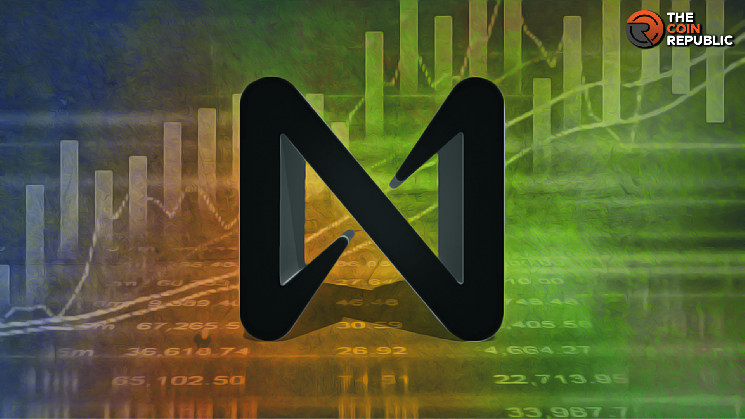The NEAR coin price has been under the influence of bulls since the end of October. During mid-December, the bullish investors made a breakout to pass a major resistance level. It further solidified the uptrend in the cryptocurrency.
What is Near Protocol?
NEAR Protocol is developed as software to encourage a network of computers to operate a platform for developers to create and deploy decentralized applications. The software’s design centers around sharding, which splits the network’s infrastructure into various segments, enabling computers, or nodes, to handle only a portion of the network’s transactions.
By distributing segments of the blockchain instead of the entire blockchain across network participants, sharding provides a more efficient way to retrieve network data and scale the platform.
How Does Near Protocol Work?
NEAR Protocol is operated and maintained by a distributed network of computers, unlike centralized data storage systems like Amazon Web Services (AWS), which serves as the base layer for building applications.
Nightshade allows NEAR Protocol to maintain a single chain of data while distributing the computing required to maintain this data into “chunks.” Participating nodes handle these chunks by processing the data and adding the information to the main chain.
This architecture ensures fewer potential points of failure when it comes to security, as participating nodes are only responsible for maintaining smaller sections of the chain. To facilitate the transfer of Ethereum tokens between Ethereum and NEAR, NEAR Protocol provides an application called the Rainbow Bridge.
This application allows users to deposit tokens in an Ethereum smart contract, lock them, and create new tokens on NEAR’s platform that represent the original ones. The original funds held in storage through the smart contract can be retrieved when the user wishes to retrieve their original tokens.
Aurora is a Layer 2 scaling solution built on NEAR Protocol for developers to launch their Ethereum decentralized applications on NEAR’s network. Aurora helps enable the developers to link their Ethereum smart contracts and assets seamlessly.
With Aurora, developers can gain the low fee and high throughput advantages of NEAR Protocol, with the familiarity and network of applications of Ethereum.
Technical Analysis and Prediction of NEAR Coin Price
NEAR/USDT chart by TradingView
At press time, the NEAR coin price is trading at the level of $3.82 after breaking the resistance level of $3.356, which is now the support for the bulls. Moreover, the RSI is showing that the bullish strength is dominating the coin.
The RSI is at the overbought level of 66 while its Simple moving average line is at 70 displaying a sudden fall in the strength.
The price prediction as per the current market scenario will be bullish. For the NEAR bulls, the support level is close to the current market price. Therefore, it is likely that the uptrend will continue.
Conclusion
NEAR Protocol is operated and maintained by a distributed network of computers. The NEAR coin has given a major breakout after the bullish investors broke a major resistance level. The coin is trading just near a demand zone, strong enough to support the bulls.
Technical Levels
- Support Levels: $3.82 and $2.56
- Resistance Levels: $4.63 and $5.97
Disclaimer
The views and opinions stated by the author, or any people named in this article, are for informational purposes only. They do not establish financial, investment, or other advice. Investing in or trading in stocks, cryptos or related indexes comes with a risk of financial loss.
Steefan George
Steefan George is a crypto and blockchain enthusiast, with a remarkable grasp on market and technology. Having a graduate degree in computer science and an MBA in BFSI, he is an excellent technology writer at The Coin Republic. He is passionate about getting a billion of the human population onto Web3. His principle is to write like “explaining to a 6-year old”, so that a layman can learn the potential of, and get benefitted from this revolutionary technology.
Read the full article here
